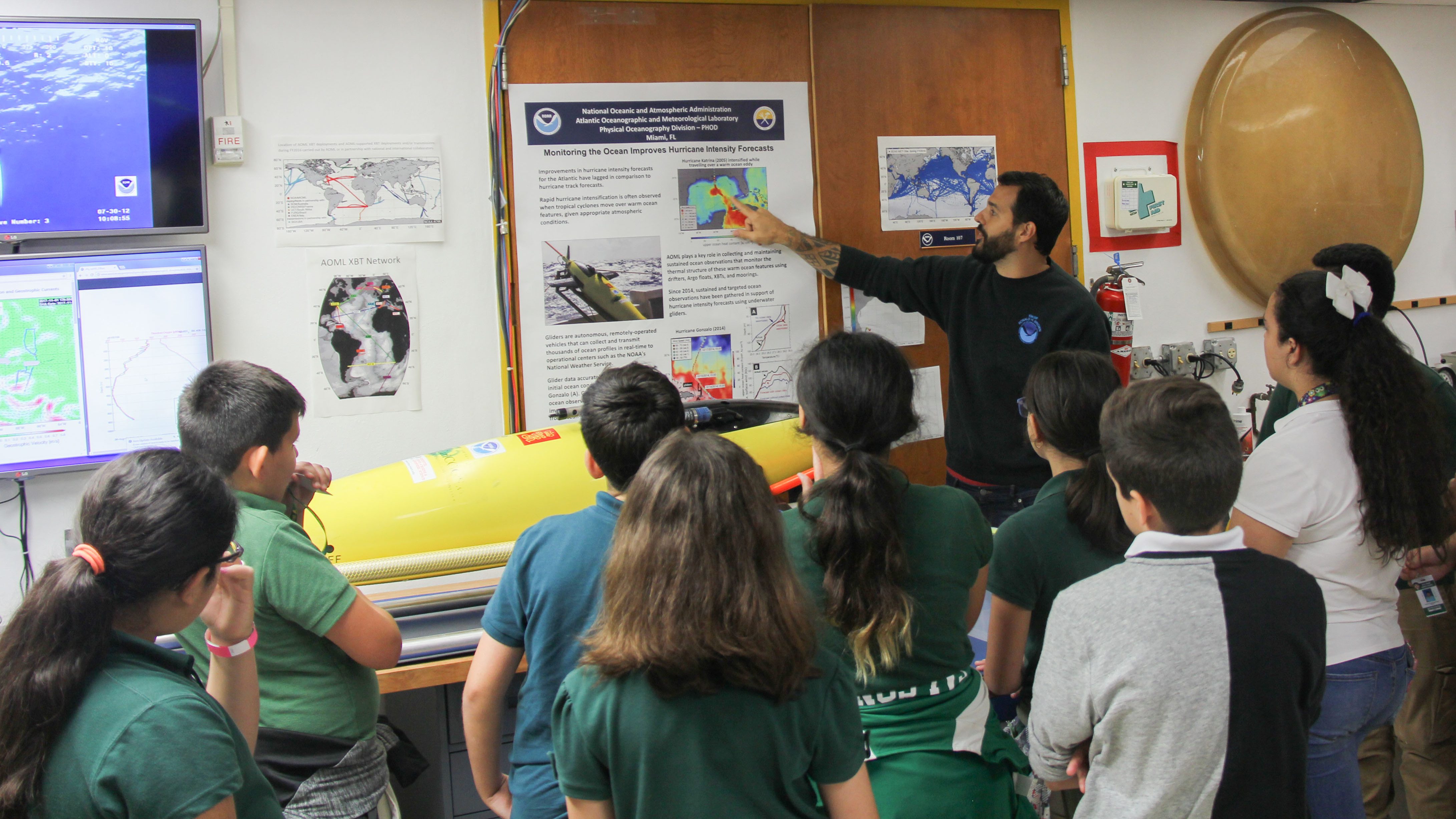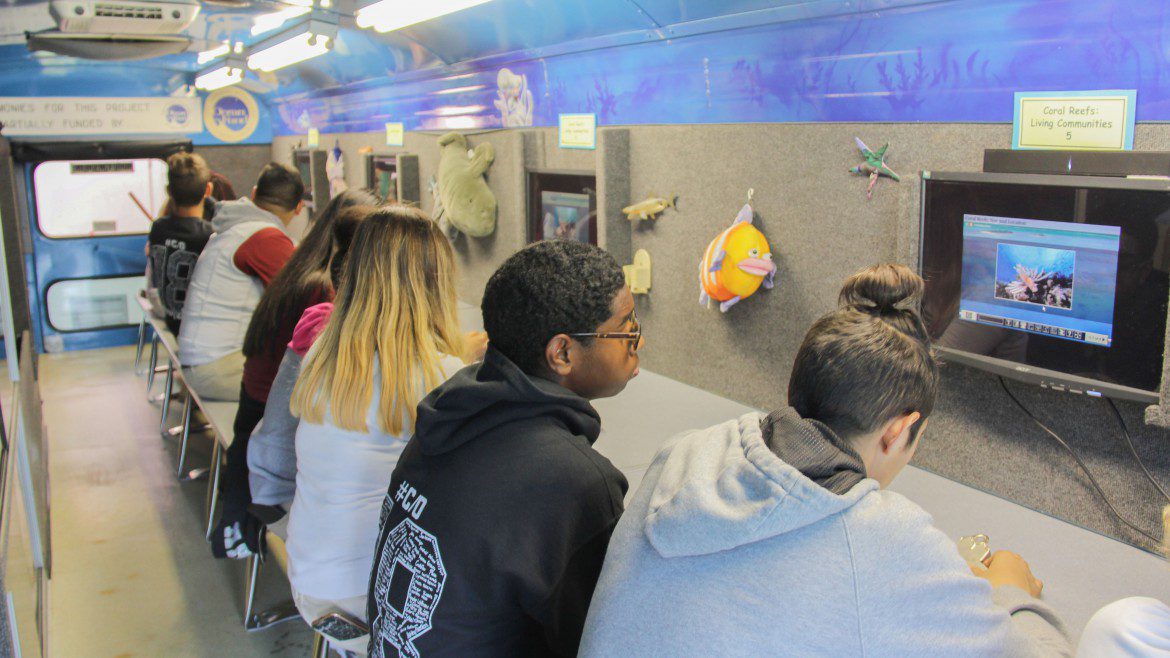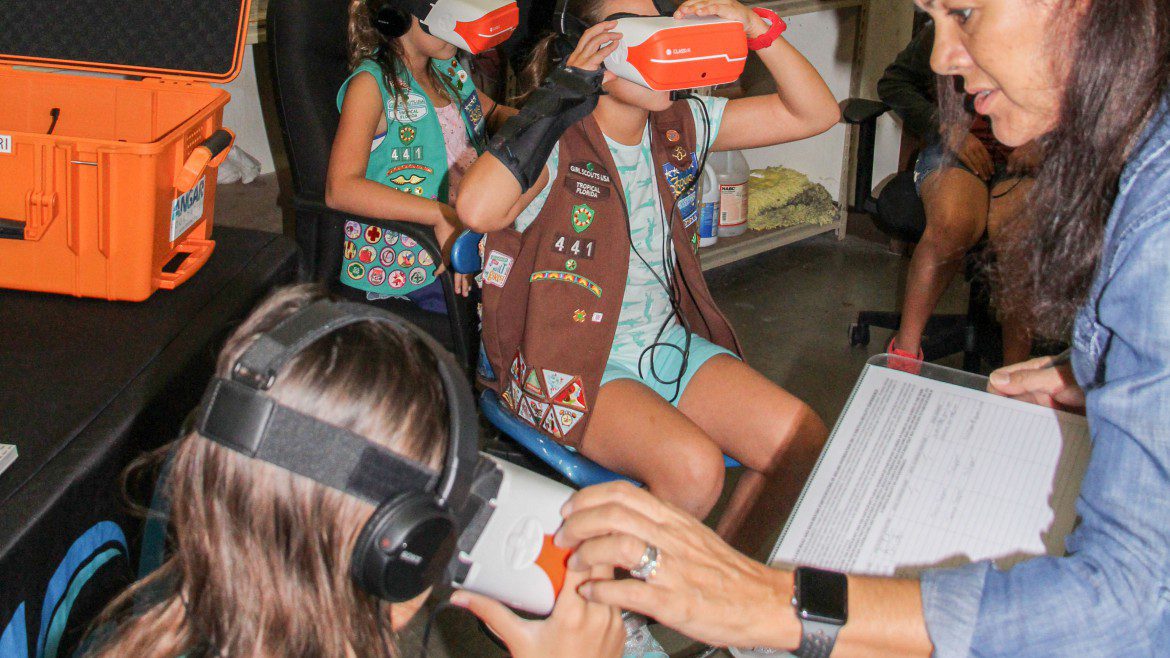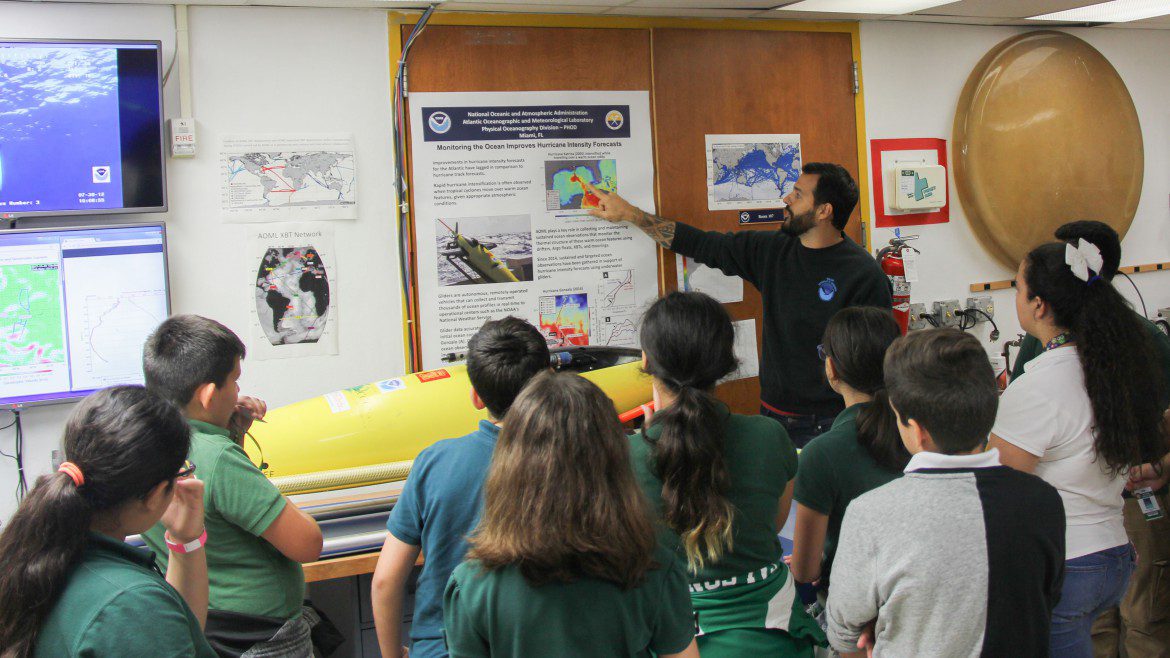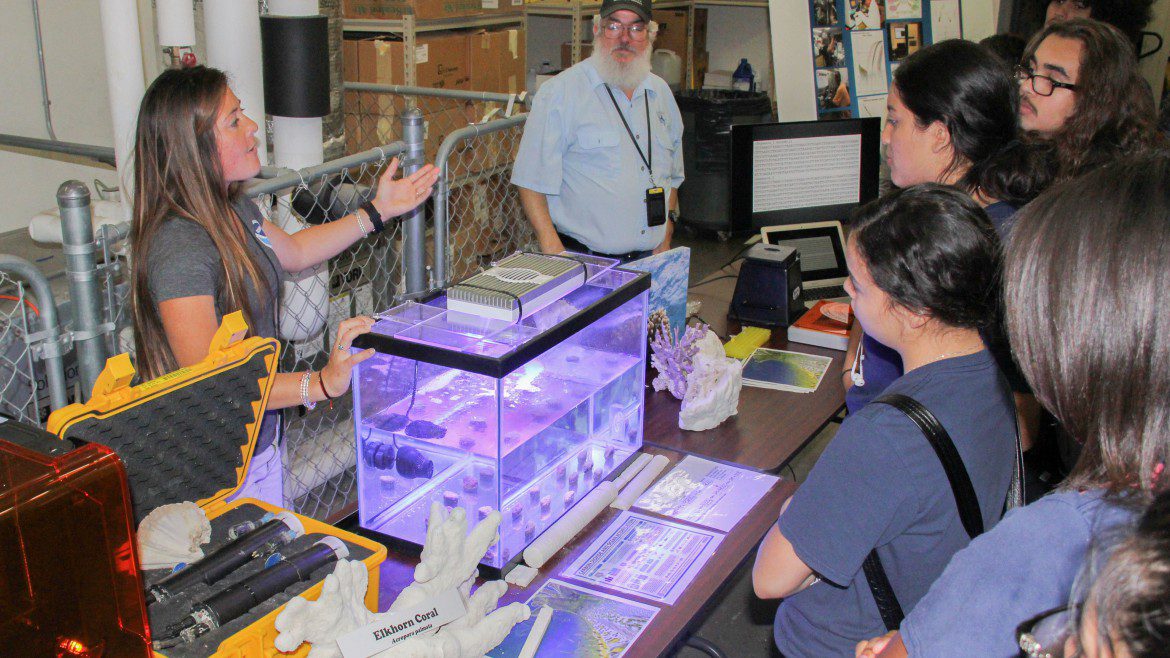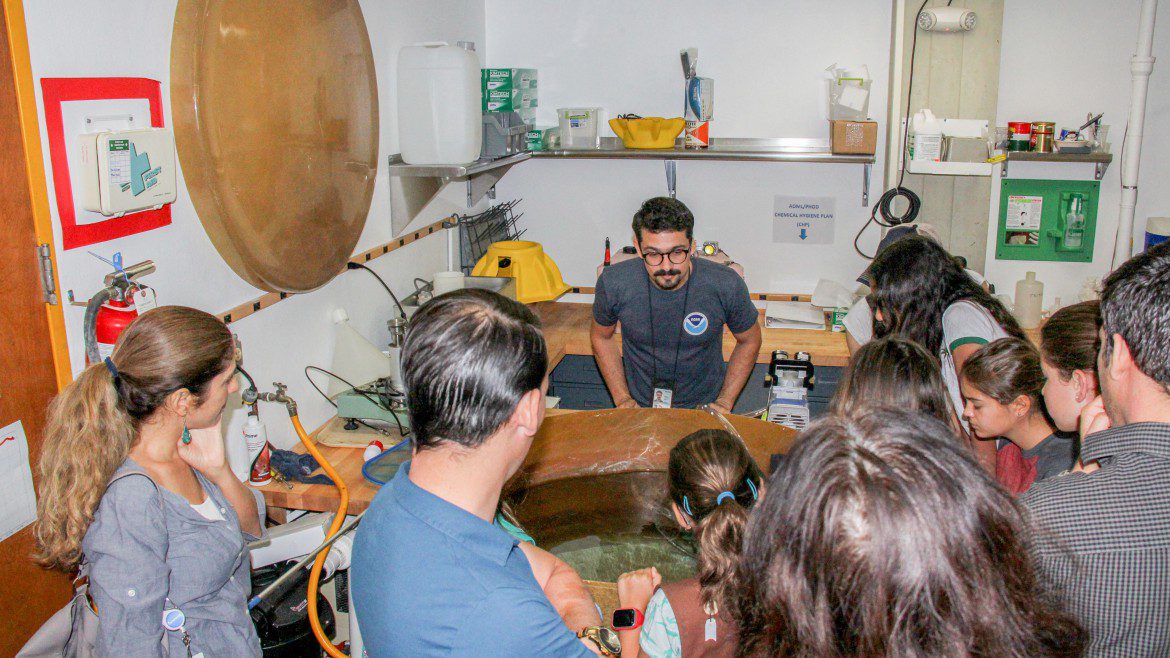May 10-12, 2018, AOML partnered with our colleagues on Virginia Key to welcome south Florida students and families to a NOAA Open House! The interactive scientific experience centered around three NOAA entities: AOML, the Southeast Fisheries Science Center, and the Miami Weather Forecast Office, as well as the University of Miami Rosenstiel School, MAST Academy, and the ANGARI Foundation. Over the three-day event, 859 guests learned more about the federal agency that provides daily weather forecasts, severe storm warnings, climate monitoring, fisheries management, coral monitoring, and coastal restoration.
The interactive experience rotated from the NOAA facilities on Virginia Key, to the University of Miami Rosenstiel School’s Experimental Fish Hatchery and SUSTAIN research facility. Participants also visited the MAST Academy Land SHARC and Weather on Wheels mobile outreach programs, and learned about weather forecasting from NOAA weather forecasters.
Employees from each participating office demonstrated aspects of their research and answered the questions from aspiring future forecasters and marine scientists. Scientific topics included insights into hurricane research, ocean observations, improving forecasts of weather and currents, fisheries, coral reefs, and endangered species.
On May 12, AOML hosted the world premiere of a new film from the ANGARI Foundation highlighting a Generation Ocean 360/VR film, entitled Generation Ocean: Coral Reefs. This six-minute film follows NOAA and University of Miami Rosenstiel School scientist Ian Enochs and his research team as they use various scientific methods to study coral reef habitats in the Florida Keys.
The 360/VR film experience immerses the viewer in the environment to present a firsthand view of the fieldwork during the expedition. Generation Ocean: Coral Reefs takes viewers to yet another special place in NOAA’s regional family, the Florida Keys National Marine Sanctuary. The viewer experiences fieldwork while the scientists take mosaic photo images, survey a coral reef, collect a coral core, and take coral samples back to the Experimental Reef Laboratory at the Rosenstiel School as well as to the CT Scanning Facility at AOML for further experimental analyses.
Beyond providing an inside look at coral reefs and showcasing ongoing research of this important ecosystem, the film was produced as an educational tool to be used in the classroom. In collaboration with Enochs and other coral reef and educational experts, ANGARI Foundation’s Educator Council will be developing standards-oriented lesson plans to complement the film and facilitate a more in-depth and engaging marine science learning experience in the classroom.
Author: Erica Rule
